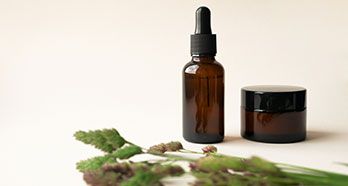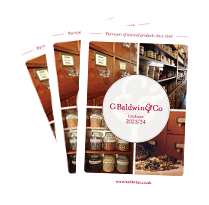The Best Alternatives to Sugar
Going sugar-free or at least trying to reduce sugar intake has become a lot more popular recently – and with good reason. In the UK, the average Briton consumes the equivalent of 238 teaspoons every week, and this contributes to over-consumption of calories with no nutritional value. When sugar is processed to create white table sugar, it is robbed of any nutrients it may have carried with it in its raw state and becomes ‘empty calories’.
There is also the issue of the environmental impact of sugarcane. The huge global market for the crop has led to pollution from industrial waste, soil erosion, and habitat loss because of the production involved.
With this in mind, you may be looking to substitute sugar in your diet with some better options. We’ve rounded up a few alternatives that you can incorporate into cooking, baking and general use, as well as some recipes for each sugar substitute to get you inspired to start a sugar-free kick. What are the best recipes you know that use no processed sugar? Add them in the comments!
Honey
While honey has a slightly higher amount of nutrients than processed sugar, it does contain more calories, so it’s best to try and use it sparingly as with any sugar supplement. However it’s also sweeter than table sugar – so you could get away with using less but still keep the same sweet flavour. If you’re looking for a milder flavour choose a lighter honey, and darker honeys have stronger flavours.
If you’re using it in baking, try and reduce the oven temperature slightly as it will caramelise quicker than ordinary sugar. One benefit however is that it will retain liquid, keeping recipes moisture for longer, leaving you with a better tasting muffin or cake.
Substitute one cup of sugar for a cup of honey, or if the recipe calls for over a cup’s equivalent, use about three-quarters of a cup of honey for every cup of sugar. These energy bars are a good place to start for a recipe where the sweetness comes entirely from honey and fruit.
Xylitol
Xylitol is another naturally present substance that can be used instead of sugar (although chemicals are added during the production process). It’s found in the fibres of fruit and veg, most commonly in cobs of corn.
With an equal sweetness to sugar it’s quite a straight forward substitute to use. When following a recipe, use the exact same amount as is called for sugar. It’s suitable for sweetening tea or coffee and using in baking – but it can’t caramelise, so don’t use it when the sugar is expected to become liquid.
It also has several health benefits – a low Glycaemic index of 7, which means it won’t cause a spike in blood sugar or insulin levels, and it is a lot kinder to teeth than your average table sugar.
Here’s a recipe for sugar free carrot cake that uses xylitol.
Coconut Sugar
Coconut sugar or syrup is a natural sweetener made from the sap of the coconut plant – and manages to retain some of the nutrients from the coconut palm (unlike the empty calories of table sugar). Although it’s high in calories just like normal sugar, it has a small amount of iron, zinc and calcium giving it slightly more nutritional value.
While it does carry some nutritional benefits unlike table sugar, these don’t outweigh the calorific content, so be mindful when you add coconut sugar or syrup to your baking or meals.
Try making some flourless brownies sweetened with coconut sugar as a first go with the sugar alternative.
Pureed Fruit
In some instances, you can switch sugar for fruit in order to up the sweetness of your dish while retaining nutritional value instead of resorting to the empty calories of table sugar. In baking, using fruit as a sugar supplement can be difficult and may require some experiments, but it can be done.
Pureed apple or banana are quite commonly used in cake or muffin recipes. Keep in mind that using pureed fruit will increase the liquid content in a recipe, so you may need to adjust other quantities to make up for this.
Banana bread is a perfect example – try reducing your usual amount of sugar in your banana bread until you are satisfied with just the natural sweetness of banana, or jump right in and try and recipe likethiswhich contains nothing but banana for sweetness.
Maple Syrup
Maple syrup has a unique flavour that a lot of people enjoy specifically for its taste, as well as its sweetness. Made from the sap of maple trees, it’s a natural alternative which has its own health benefits – as long as you find actual maple syrup, and not maple flavoured high fructose corn syrup.
While it is still made up of some sugar itself, it also contains some minerals and antioxidants such as calcium, potassium and manganese. The darker syrups have higher concentrations of antioxidants than their lighter counterparts, and are more suited to baking or cooking. Lighter syrups are better to use as they are – to drizzle on pancakes, for example.
A good guide is to substitute 1 cup of white sugar for ¾ cup of maple syrup. Give sugar-free maple granola a go for a first try with cooking with maple syrup.
Stevia
Stevia is another popular alternative to sugar, with virtually no calories (whereas a teaspoon of sugar contains around 16). Some studies have shown that it can contribute to lowering blood pressure and blood sugar levels in diabetics.
It’s a lot sweeter than sugar so you can use less, and is suitable for using in baking (but reduce the volume if your recipe calls for table sugar). Here’s an example of asugar free cookie recipeusing stevia.
Have you started trying to lower your processed sugar intake? What’s your favourite sugar substitute? Let us know below!
No related posts.







 Looking for Qualified Advice on Herbs & Supplements?
Read our health guides, quick tips and popular posts on a range of health conditions, products & fitness
Looking for Qualified Advice on Herbs & Supplements?
Read our health guides, quick tips and popular posts on a range of health conditions, products & fitness
 At number 64, our Walworth Road Shops are featured in Time out London’s
100 best shops and we couldn’t be more delighted!
At number 64, our Walworth Road Shops are featured in Time out London’s
100 best shops and we couldn’t be more delighted!

 View our Catalogue online.
It is stocked full of our latest oils, beauty products, health foods & gifts.
View our Catalogue online.
It is stocked full of our latest oils, beauty products, health foods & gifts.